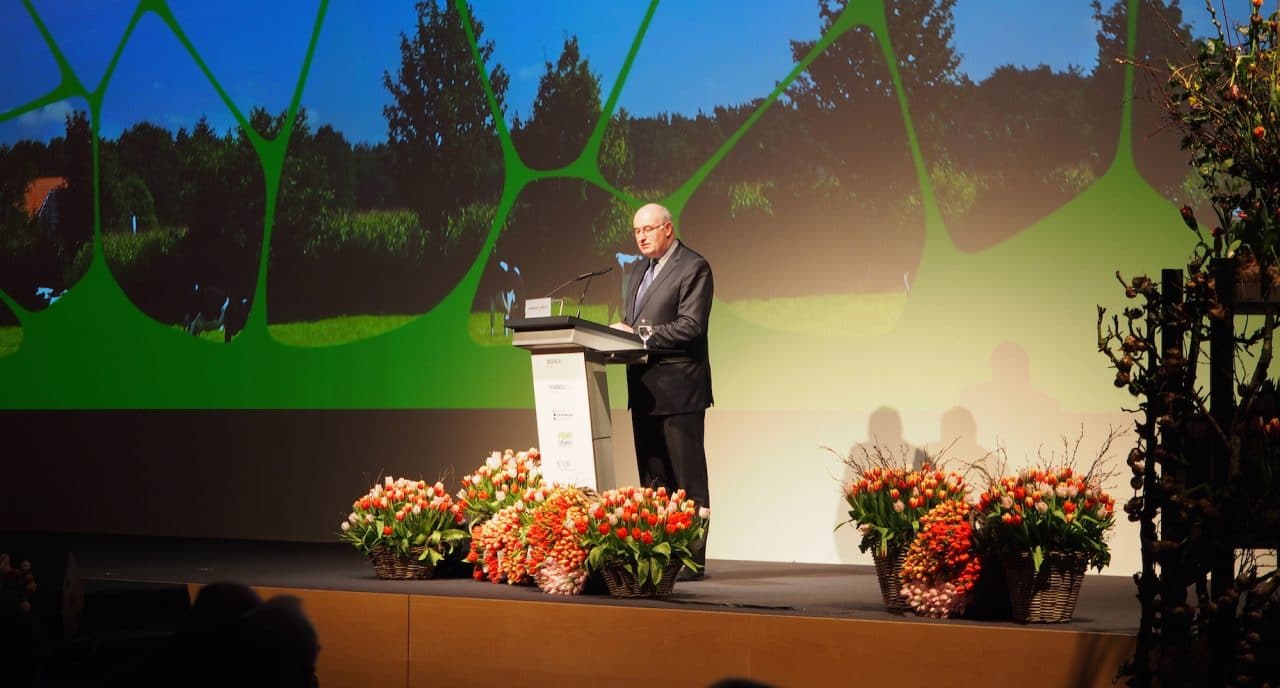Evidence that attitudes are hardening towards the European Commission’s plan to radically overhaul organic regulations in Europe was on clear display at last week’s Biofach exhibition and congress in Nuremberg.
Leading organic industry figures and senior politicians from across Europe used the event to call on the new European agriculture commissioner, Phil Hogan (pictured), to apply the brakes on the process of revising the EU Organic Regulation.
The Commission wants agreement on the final form of the revised Regulation in place by June of this year.
Robert Kloos, state secretary at Germany’s Ministry for Food and Agriculture, insisted there was no need for wholesale change to Europe’s organic rules: “We (already) have a Regulation that is tried and tested. We need to enhance, not re-write the rules”. The Dutch agriculture minister, Sharon Dijksma, warned that that speed at which the Regulation was being advanced “puts organic farmers at risk at a time when we need this type of farming more than ever”. Her message to the new commissioner was simple: “Phil, please submit a new EU regulation”.
But commissioner Hogan, giving his first major speech to the organic industry, warned that “failure to move forward would probably mean a delay of five years in improving the regulatory framework of a dynamic and growing sector”. He added: “Can we afford to stand idly by and let complex rules choke further development?”.
“Failure to move forward would probably mean a delay of five years in improving the regulatory framework of a dynamic and growing sector”
Hogan insisted that the Commission was working to get the best outcome for organic farmers and food producers. He said that the new Junker Commission saw “simple EU-wide rules on organic” as part of its high priority jobs and growth agenda. New impetus had been given to organic reform, he said, “so the sector could move forward with a greater sense of clarity and certainty”.
Hogan said reforms were also needed to protect public confidence in organic. “Recent cases of fraud in the organic supply chain demonstrate how fragile a thing public confidence and public trust are in issues such as certification and traceability.” And he warned: “We are only one high profile scandal away from undermining public confidence”.
But industry figures said major areas of concern about the Commission’s proposals remained. And they warned that legislation intended to help the organic food industry could end up threatening its future. Dr. Felix Prinz zu Löwenstein, chairman of BÖLW, said: “We don’t need a revolution that throws away the baby with the bathwater”. Chris Stopes, President of the IFOAM EU Group, added: “The standard shouldn’t be the master, but the servant. The Regulation needs to be enabling – but at the moment it’s going in the wrong direction.”
“The standard shouldn’t be the master, but the servant”
While commissioner Hogan was adamant about sticking to the current tight timetable, he said he would “take a fresh look” at those issues that had “triggered fears among stakeholders” He also acknowledged the role of the Council of Ministers and the European Parliament in the process, and said he “looked forward to working rapidly and very closely with European Parliament rapporteur, Martin Häusling”.
Martin Häusling, a Green MEP, earlier made his own view on the matter clear: “We don’t want a complete revision of the EU organic regulation, but a reform that will work in practice. This is our ambition in the Parliament.”
Jim Manson





